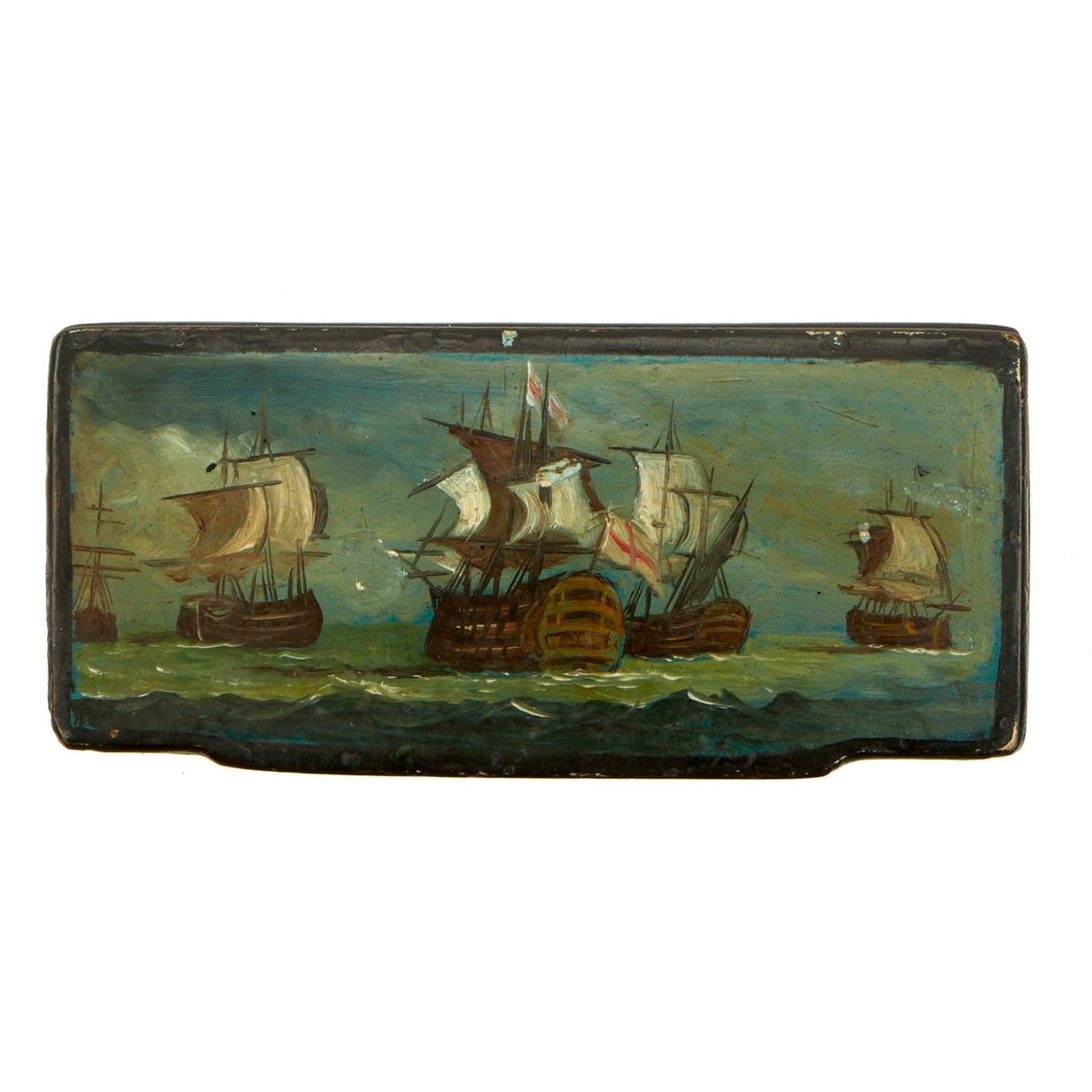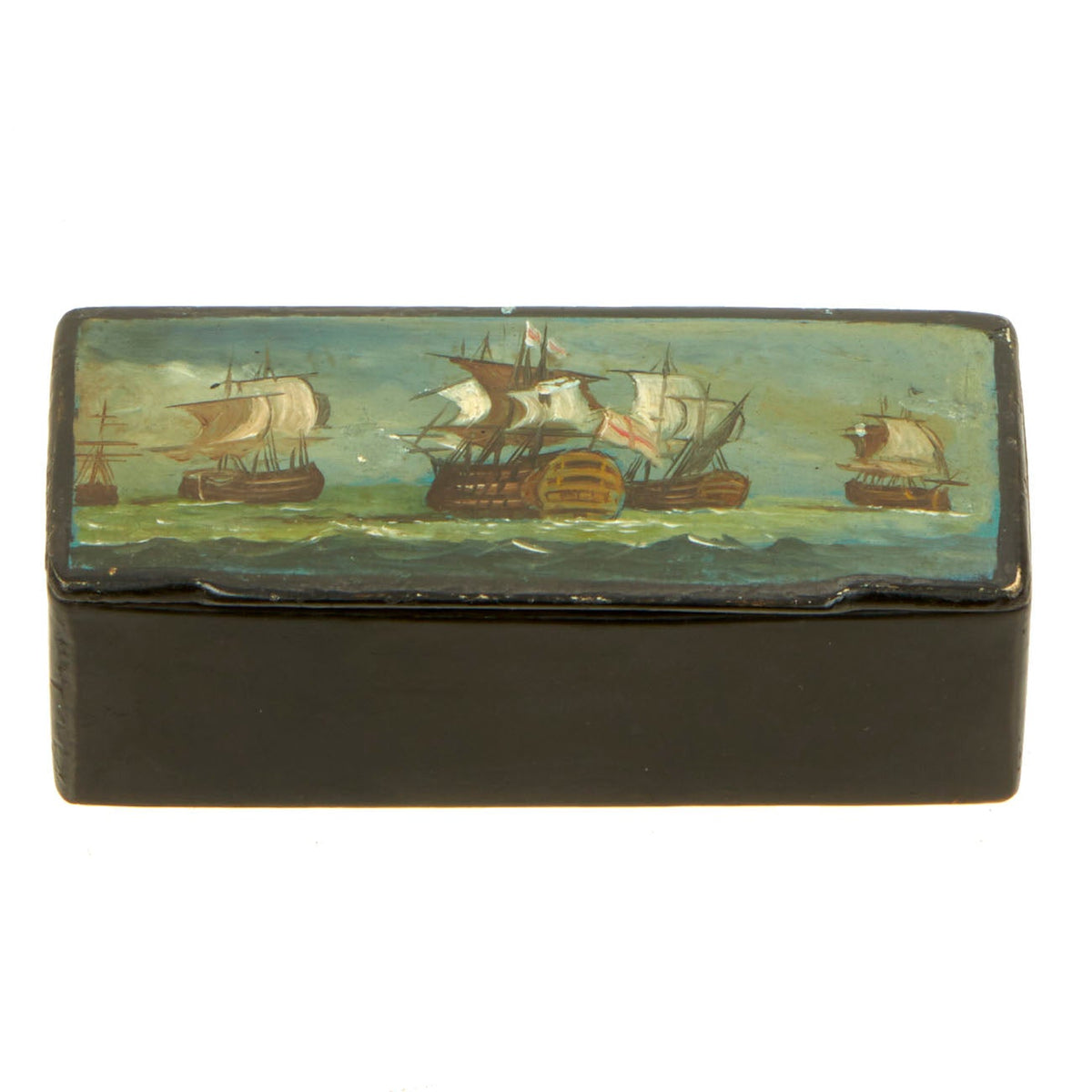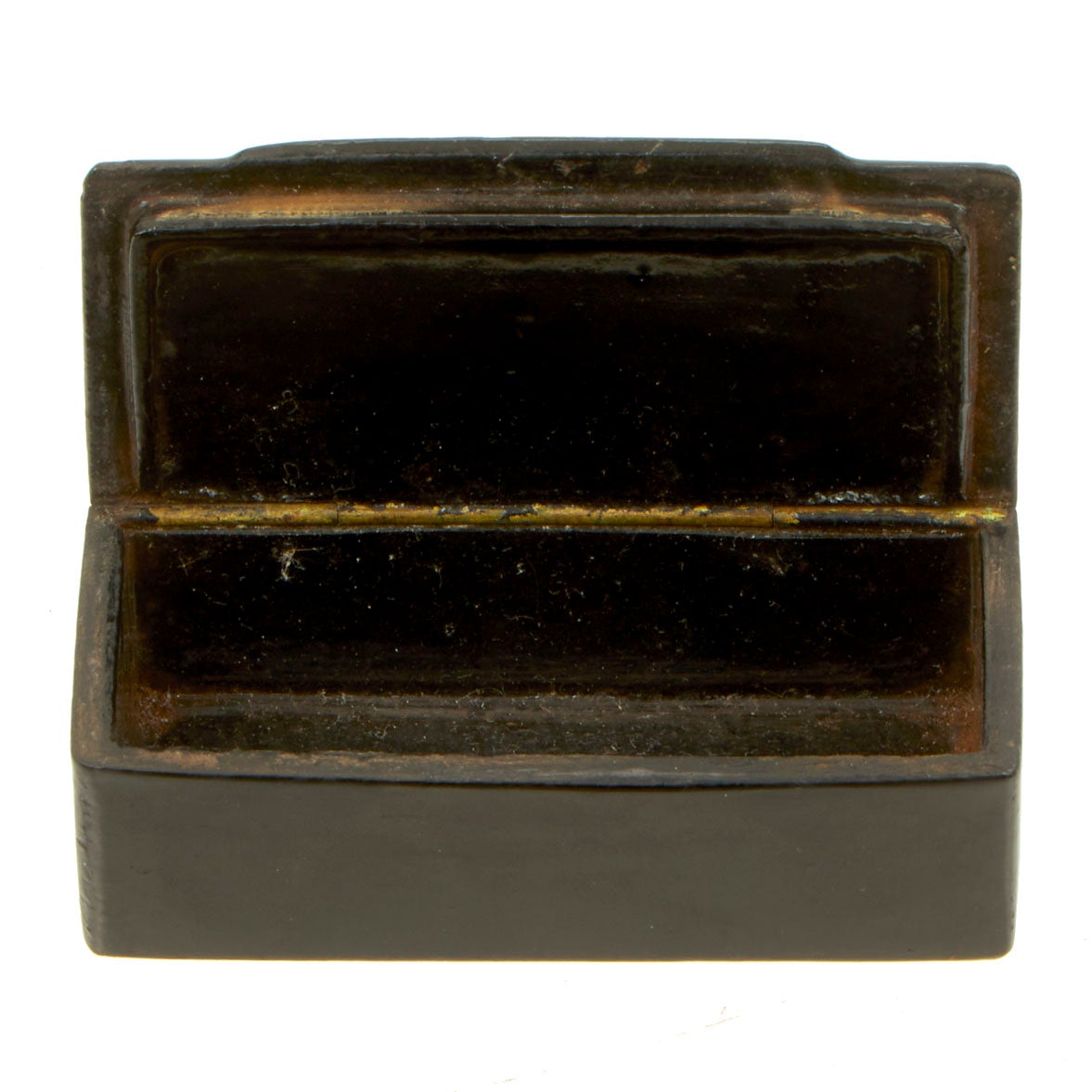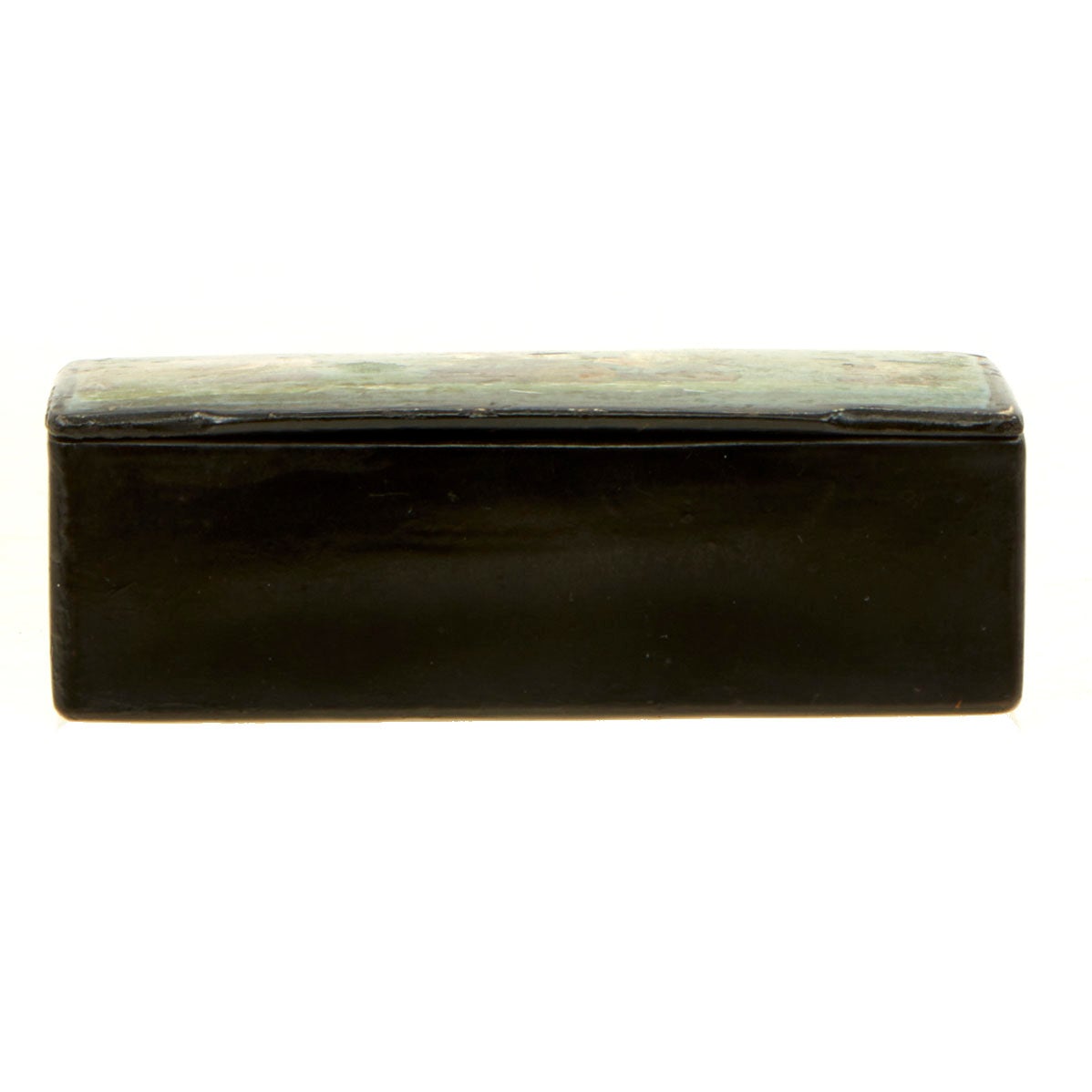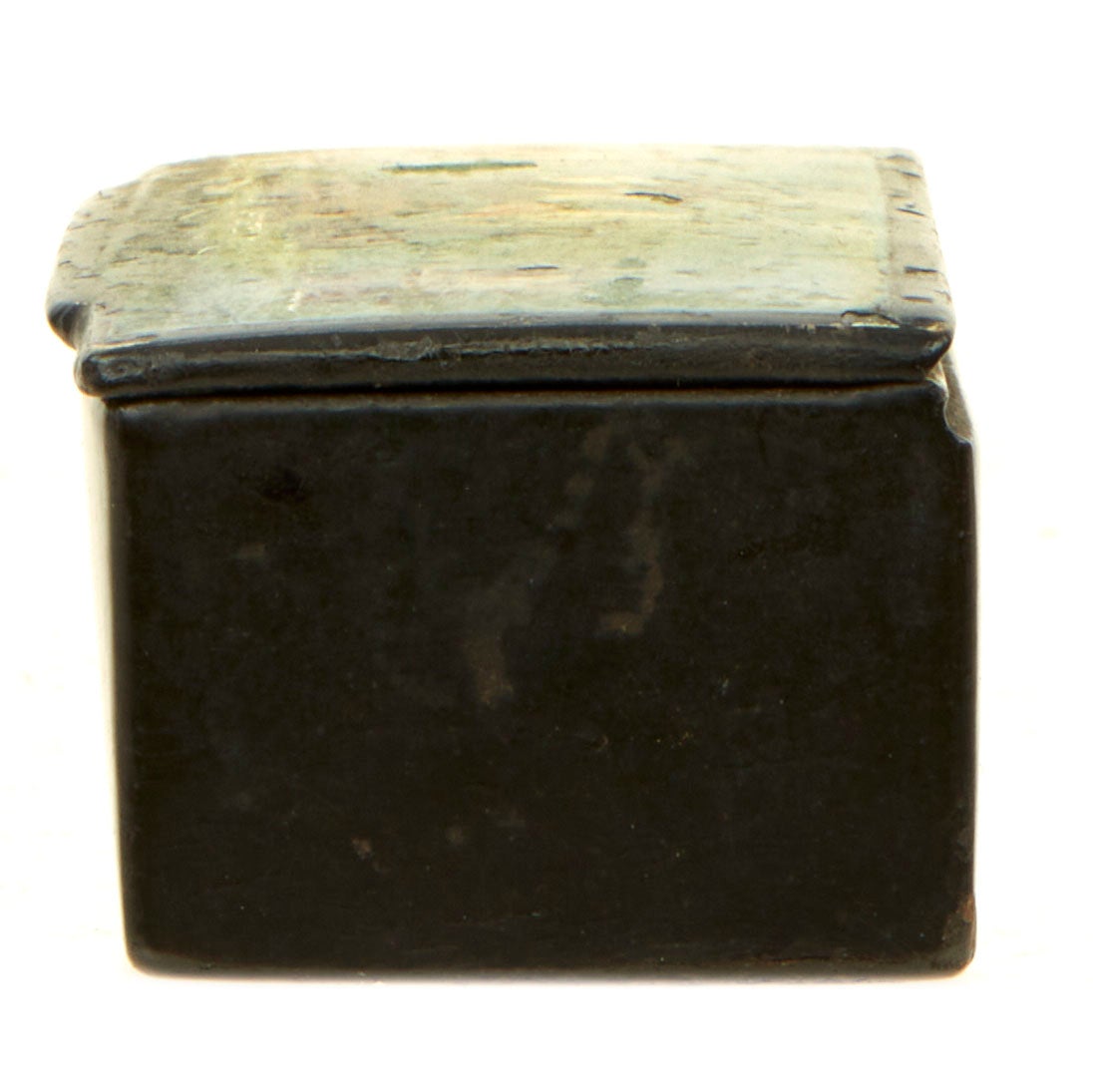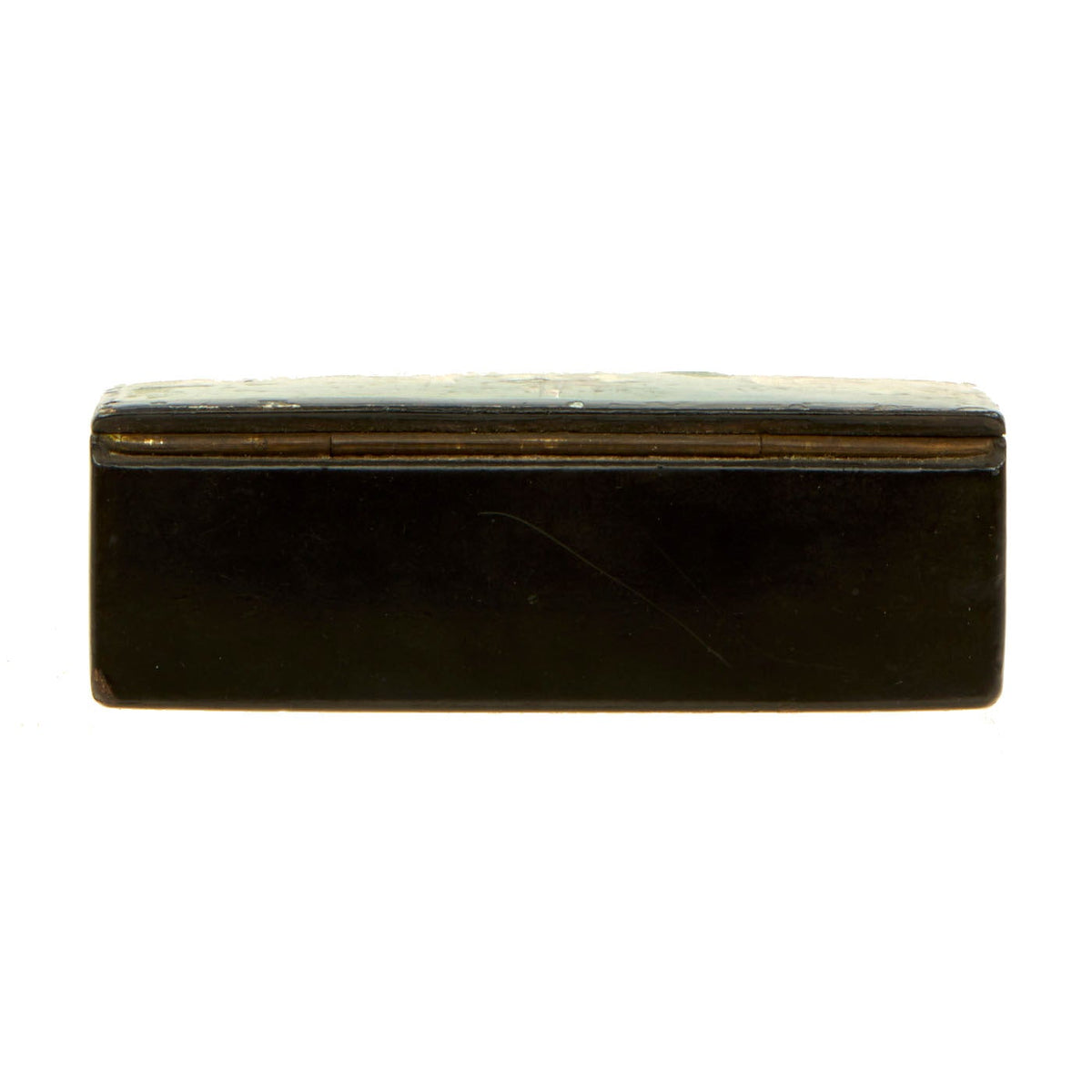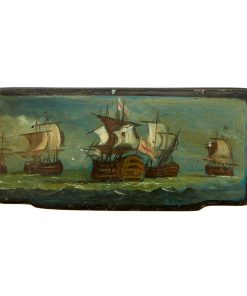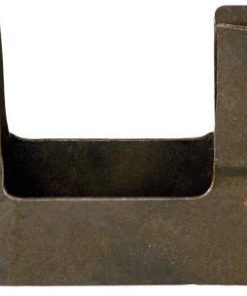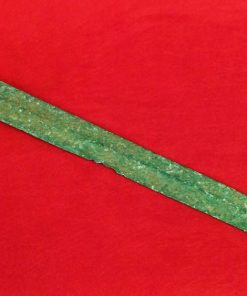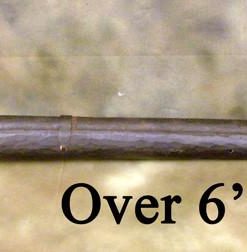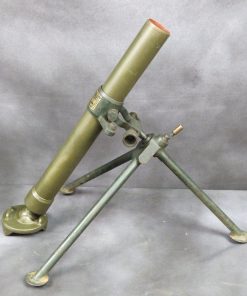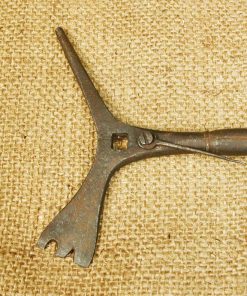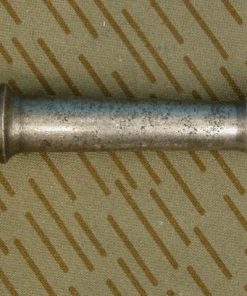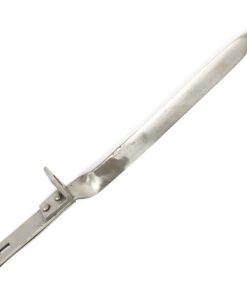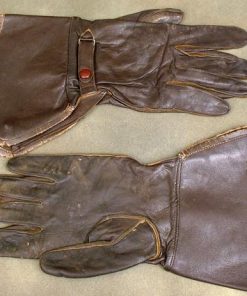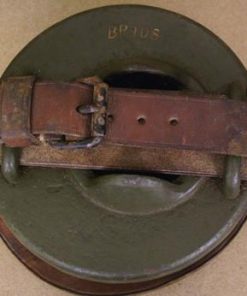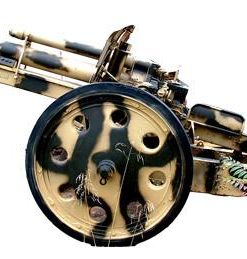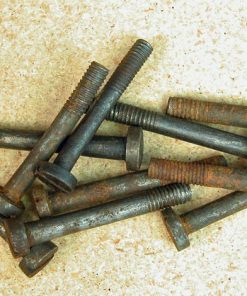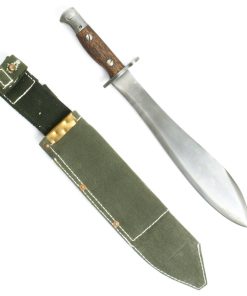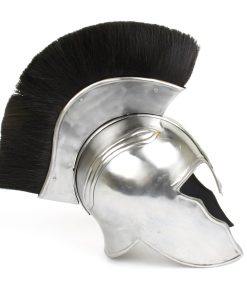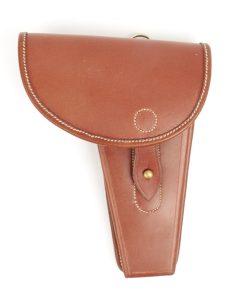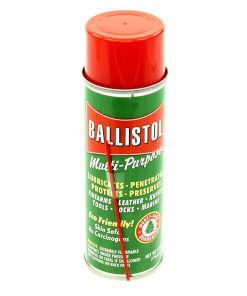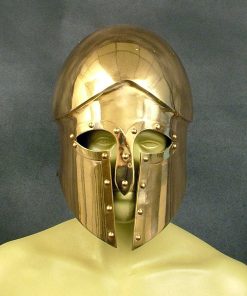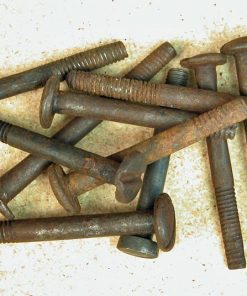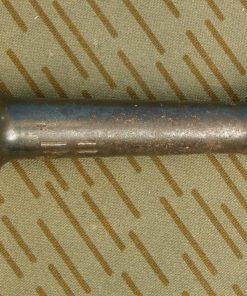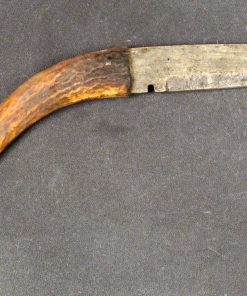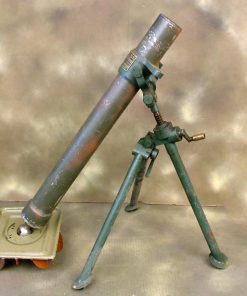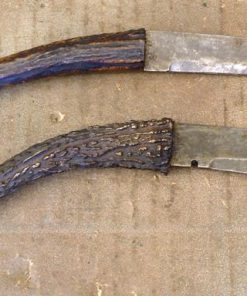Original British Georgian Era Papier Mache H.M.S. Victory Snuff Box – Late 1700s to Early 1800s Original Items
$ 595,00 $ 178,50
Original Item: Only One Available. This is a really beautiful Georgian Era Lacquered Papier Mache snuff box depicting a great hand painted Naval battle scene. Judging by the artwork and construction, we do believe this box was made during the late Georgian era. The Georgian era is a period in British history from 1714 to c. 1830–37, named after the Hanoverian Kings George I, George II, George III and George IV. The definition of the Georgian era is often extended to include the relatively short reign of William IV, which ended with his death in 1837.
This 3 ¾” x 1 ½” x 1” box we believe could have very likely been owned and used by a Royal Navy Officer of the British Empire. The top of the lid has a very beautiful Naval battle scene being fought between 5 ships, one of which appears to be the HMS Victory. The position of the flags, sails and rear of the ship is almost identical to the HMS Victory in physical appearance as well as old artwork of the Victory.
The box is in very good condition for being over 220 years old and could still be utilized today. Almost all of the original black lacquer is still present as well as all the paint and colors used for the battle scene, but the colors have faded slightly.
This box comes ready to display in your Georgian Era British Empire collections!
The papier mâché box was used to store snuff, tobacco that is snorted or inhaled through the nose. Snuff, a powdered form of tobacco, was popular in the 1700s and 1800s for its stimulating nicotine boost and was also believed to help relieve common colds and stop snoring.
When snuff-taking was fashionable, the manufacture of snuff accessories was a lucrative industry in several cultures. In Europe, snuff boxes ranged from those made in very basic materials, such as horn, to highly ornate designs featuring precious materials made using state of the art techniques. Since prolonged exposure to air causes snuff to dry out and lose its quality, pocket snuff boxes were designed to be airtight containers with strong hinges, generally with enough space for a day’s worth of snuff only. Large snuff containers, called mulls (made from a variety of materials, notably including rams horns decorated with silver), were usually kept on the table.
A floral-scented snuff called “English Rose” is provided for members of the British House of Commons. Recent practice has been for this tradition to be maintained at the principal doorkeeper’s personal expense due to smoking in the House being banned since 1693. A famous silver communal snuff box kept at the entrance of the House was destroyed in an air raid during World War II with a replacement being subsequently presented to the House by Winston Churchill. Very few members are said to take snuff nowadays.
Fast Shipping with Professional Packaging
Thanks to our longstanding association with UPS FedEx DHL, and other major international carriers, we are able to provide a range of shipping options. Our warehouse staff is expertly trained and will wrap your products according to our exact and precise specifications. Prior to shipping, your goods will be thoroughly examined and securely secured. We ship to thousands clients each day across multiple countries. This shows how we're dedicated to be the largest retailer on the internet. Warehouses and distribution centres can be located throughout Europe as well as the USA.
Note: Orders with more than one item will be assigned a processing date depending on the item.
Before shipping before shipping, we'll conduct a thorough inspection of the items you have ordered. Today, the majority of orders will be delivered within 48 hours. The delivery time will be between 3-7 days.
Returns
The stock is dynamic and we cannot completely manage it because multiple stakeholders are involved, including our factory and warehouse. So the actual stock may alter at any time. It's possible that you may not receive your order once the order has been made.
Our policy is valid for a period of 30 days. If you don't receive the product within 30 days, we are not able to issue a refund or an exchange.
You can only return an item if it is unused and in the same state as the day you received it. You must have the item in its original packaging.
Related products
Uncategorized
Uncategorized
Uncategorized
Uncategorized
Angolan Rebel 1970s era 60mm Inert Display Mortar from Angolan Civil War Original Items
Uncategorized
Uncategorized
Uncategorized
Uncategorized
Uncategorized
Band of Brothers ORIGINAL GERMAN WWII Le. F.H. 18 10.5cm ARTILLERY PIECE Original Items
Uncategorized
Uncategorized
Uncategorized
Uncategorized
Uncategorized
Uncategorized
Uncategorized
